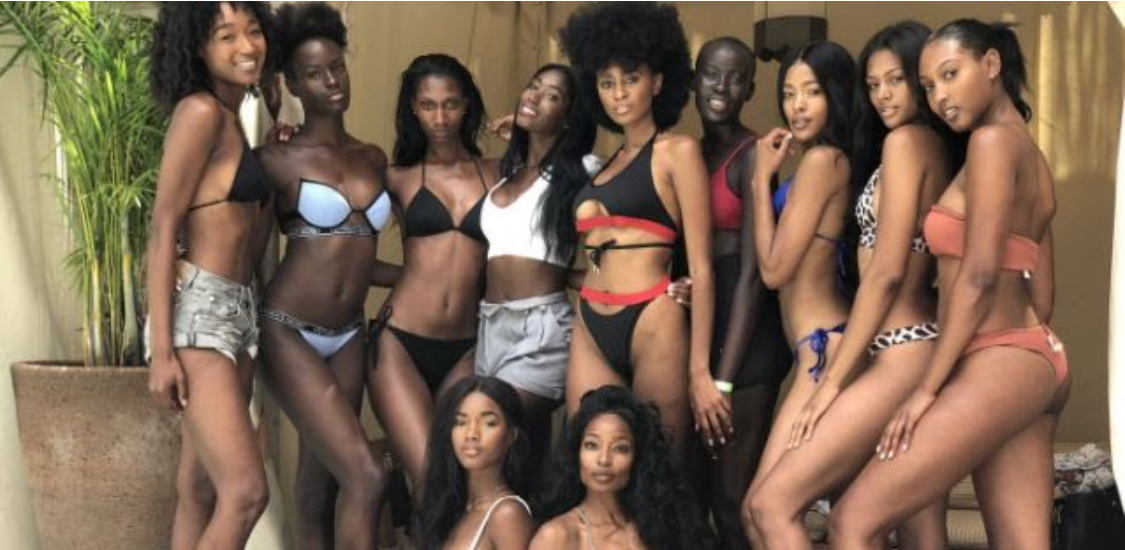Talbott says she and other black models were in line for a casting call, along with a few models who were not of color. She alleges that the casting director looked at the line and pulled another woman, who Talbott says was “directing traffic” and letting models know when they could enter the casting room, off to the side to have a private conversation.
After her talk with the director, Talbott says the woman pointed her out in the line and said, “You, your hair, no.” Talbott, who wears her natural hair in an afro style, asked, “Wow, really?” but says the woman didn’t budge on her decision. According to Talbott, she was putting her shorts back on over her swimsuit so she could leave when the woman then told all the models in line, “No dark skin.”

KYA released a statement saying it was investigating what went wrong at the casting call.
“Everyone at KYA Swim is deeply disturbed by the allegations brought by Joia Talbott and other models about the casting event at Miami Swim Week,” the company said in a statement. “KYA Swim is proud of its record of diversity and we are the midst of looking into the events of last Thursday to review the actions of the production company in charge of the casting call.”
The call was run by Miami Beach-based production company Funkshion, which punted the blame back on KYA. In an emailed statement, Funkshion’s chief creative officer Natalija Stojanovic said the company’s mission has always been to “reflect the diverse culture we live in today.”
“As much as we push for diversity and inclusion in our shows, ultimately, it is the individual designers who make the final decisions on the model selections for their brands,” Stojanovic said. “While the incident that has been reported is unfortunate, we encourage the dialogue about representation of models of all types to happen. It is our goal to further push to break down existing barriers wherever we can.”
Citrone and other models say the issue with KYA doesn’t speak for the overall spirit of Miami Swim Week, which ran from Thursday to Tuesday.
odel Quiyona Salmon wrote in an email that she was booked all weekend, and even had to turn a designer away because she had already committed to another show.
“This is a cutthroat industry and it’s either you have the look that the designer wants or not. Simple,” Salmon wrote in an email. “You’re going to get a bunch or ‘no’s’ before you get that one ‘yes’ and you just have to move on.”
Models have previously protested the lack of African American representation at other fashion-industry shows. Last year, a group of models staged a “Black Models Matter” protest in front of the Balenciaga show at Paris Fashion Week to protest the designer’s alleged preference for white models.
 Photo credit: Joia Johnson- Talbott
Photo credit: Joia Johnson- Talbott
But the industry’s diversity is improving. The Fashion Spot’s seasonal Diversity Report found that fall 2018 New York Fashion Week was the most diverse ever, with 37.3 percent of the models on the runway were women of color, while 62.7 percent of models were white.
“I truly believe that the system is revolutionizing and African American models and ‘dark skin models’ are given more opportunities than before in the fashion world, and I’d like to see it continue,” Citrone said.
Overall, this year’s Miami Swim Week has been praised for its diversity. Several shows featured plus-size models, and the Sports Illustrated show featured a nursing mother and a model with a prosthetic leg.






















 Photo credit: Joia Johnson- Talbott
Photo credit: Joia Johnson- Talbott



